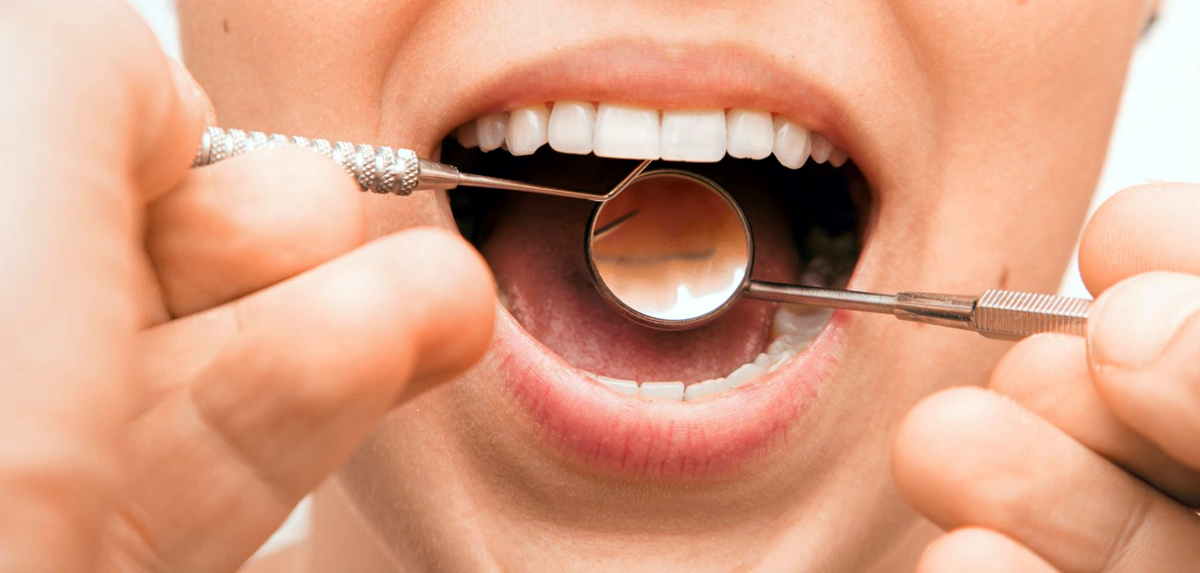Dr. Gautam Sharma
The public may not be aware but poor oral health can attribute to various general health problems. The pathogenic and virulent bacteria which causes dental infections can transport and spread via blood to cause infections in the various vital organs of the body.
There were instances in the medical literature where during the olden times, all the teeth of patients were extracted to prevent any spread of infection of the dental origin. With the increase in scientific knowledge regarding the infections of oral origin and their spread, more conservative approaches were adopted and teeth were treated and saved rather than extracted.
Periodontal disease or periodontitis is the condition which affects the supporting structures around a tooth or a group of teeth including gums, alveolar bone and periodontal ligament or membrane. So this means that periodontal disease weakens the support of a tooth. A patient who suffers from periodontal disease may complain of bleeding, redness and swelling along with pain in the gums, foul smell from the mouth, mobile teeth, gums moving away from their position, pain and sensitivity in teeth, increasing gap between the teeth etc.
The commonest reason for occurrence of periodontal disease (periodontitis) is bacterial infection which causes destruction of the supporting structures of a tooth. The human body activates its defense against these disease causing bacteria by activating an immune response. This immune response against bacteria leads to inflammation. So inflammation is a response of body to protect itself from any harmful stimulus. But when this inflammation is excessive then it may cause damage to the normal body tissues.
Periodontal medicine is an upcoming branch of dentistry which studies the effects of the periodontal health on the overall general health of a person.
Atherosclerotic vascular disease (AVD)
In AVD, lumen of an artery narrows due to the plaque buildup inside the artery. This plaque may lead to thrombus formation that may ultimately lead to the occlusion (blockage) of the blood vessel. In case the coronary artery is occluded, it may lead to myocardial infarction (MI) which can further lead to heart failure, and if cerebral vessel is occluded, it leads to stroke which can cause damage to the brain.
In periodontitis, billions of bacteria may be found around a tooth and the most virulent and pathogenic bacteria and their products may act as a source for the immune reaction which in-turn can cause local and systemic inflammation. Secondly, these bacteria and their products can enter the blood stream through procedures like tooth-brushing or any trauma to the oral tissues and causes bacteremia. Thirdly, the body releases certain chemicals which helps to eradicate these bacteria and their products, and these pro-inflammatory mediators are called pro-inflammatory interleukins, which are produced locally at the site of infection and may also get disseminated to other sites through the blood stream.
If this inflammation persists for long duration (called chronic inflammation), it may become a contributor for atherosclerosis. The most common reason for chronic inflammation of the periodontal tissues is dental plaque which is present below the gingival (sub-gingival plaque). A specialist dentist who deals with the periodontal tissues called as Periodontist can remove this sub-gingival plaque and calculus by a technique called as scaling and root-planing. A periodontist also removes the ulcerated gingival tissues facing the tooth and infiltrated by the bacteria and their products by a procedure known as gingival curettage.
Periodontitis and Diabetes
Diabetes Mellitus can adversely affect the periodontal tissues and oral health while poor periodontal health can have a detrimental effect on the diabetes. So it’s a two way relationship between diabetes and periodontitis.
As already mentioned, periodontitis results in an elevation in the levels of pro-inflammatory interleukins and prothrombotic mediators in the serum. This in-turn may result in insulin resistance, may adversely affect the metabolic control, and, may contribute to the development of diabetic complications. Chronic inflammation promotes insulin resistance and dysregulates glycemia.
Lung infections and Kidney diseases
Pulmonary infections and Renal diseases may be a common finding in the patients suffering from the perodontitis. Studies have found that chronic periodontitis has a negative effect on renal function and pulmonary health of an individual.
Conclusion
There is a positive association between the periodontitis and systemic diseases. It was found that that treatment of periodontitis helps in the lowering the levels of systemic inflammation. Therefore, general physicians, cardiologists, gynecologists, endocrinologists and pulmonologists must examine the oral cavity of the patients reporting to them and refer their patients to periodontists for oral prophylaxis. The general public should also consult a dentist every six months so that they can be screened for any oral disease at an early stage and treatment can be initiated.
Bleeding from gums should not be taken as a normal feature. If you observe bleeding gums, deposits on teeth, mobile teeth, gingival recession, discolouration of teeth and gingival etc., then you must immediately report to a periodontist for a clinical examination.
(The author is former President of the Indian Dental Association, Jammu.)


